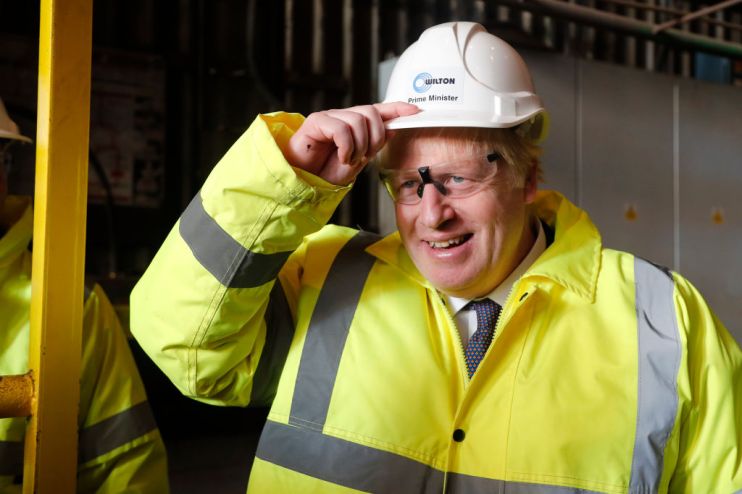General Election 2019: Boris Johnson hints at plans to hike National Insurance threshold

A Conservative government would put up the National Insurance threshold to £12,000 as part of plans to “cut tax for working people”, Boris Johnson said today.
During an apparently unintended revelation as part of a question and answer session in a Teeside factor, the Prime Minister told reporters he would increase the rate at which people start paying NI from its current level of nearly £8,800 to create a “low tax” environment for “working people”.
Johnson said: “If we look at what we’re doing, and what I’ve said in the last few days, we’re going to be cutting National Insurance up to £12,000, we’re going to be making sure that we cut business rates for small businesses.
“We are cutting tax for working people.”
He subsequently confirmed Tories would raise the threshold to £9,500 next year with the “ultimate ambition” to raise it to £12,500 if they win the General Election.
National Insurance contributions are currently planned to rise to £8,788 in 2020/21.
The Institute for Fiscal Studies (IFS) recently described the idea of raising the NI threshold as one of the best ways to help low earners.
But the think tank warned that each £1,000 hike would cost £3bn in revenue – with a total cost of £5bn if the employer threshold were raised to match.
“Raising the NICs threshold is the best way to help low and middle eaarners through the tax system, but if the aim is to help the lowest earners increasing work allowances under universal credit is much more effective,” a recent report concluded.
“Only three per cent of the total gains from raising the NICs threshold, either by £1,000 or to the personal allowance threshold, would accrue to the poorest fifth of houeholds. Spending £3bn on increasing work allowances could raise incomes of the poorest fifth of houesholds by 1.5 per cent, compared with less than 0.1 per cent under and equally costly NICs cut.”
Main image: Getty